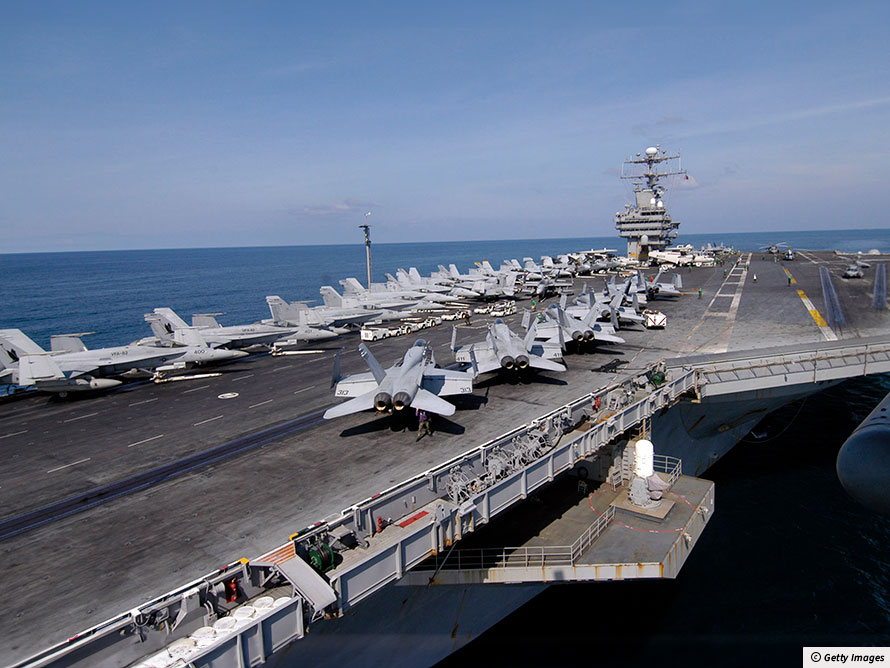Are we panicking? After launching a strike on Iranian soil, Israel awaits its enemy’s retaliation. Some fear their deadly duel could drag in the whole world — but are they right?
How to stay calm and think about WW3
 Threat: In the past few days America has ordered a carrier strike group, a fighter squadron and warships including the massive aircraft carrier USS Abraham Lincoln (above) to the Middle East.
Threat: In the past few days America has ordered a carrier strike group, a fighter squadron and warships including the massive aircraft carrier USS Abraham Lincoln (above) to the Middle East. Glossary
Archduke Franz Ferdinand - The heir to the throne of Austria-Hungary. He was assassinated in Sarajevo in June 1914 aged 50, which led to the start of World War One.
Hamas - A militant Palestinian organisation, which has controlled the Gaza Strip since 2007. It is listed as a terrorist organisation in the UK.
Iran - A country in Western Asia, officially called the Islamic Republic of Iran. It has a population of 84 million.
Israel - A country in the Middle East, and the only Jewish nation in the modern period. It is seen by Jews, Christians and Muslims as the Holy Land.
Taiwan - An island country in east Asia. China still claims to be the legitimate owner of Taiwan, while the Taiwanese government until recently claimed to be the legitimate government of the whole of China.
Cuban Missile Crisis - A confrontation between the US and the Soviet Union that occurred after the USSR installed missiles on the island of Cuba, within 140km of Florida.
Houthis - An Islamist rebel group that controls a large part of Yemen. They are allies of Hamas in Gaza.
Militias - A militia is an informal armed group operating independently of the state.
Hezbollah - A militant organisation based in Lebanon, classified in the UK as a terrorist group. It has made direct attacks on Israel and is believed to have been responsible for assassinating Lebanon's former Prime Minister Rafic Hariri.
Iron Dome - Israel's air defence system to protect itself from missiles. It uses radar to detect rockets and fires missiles back to intercept them.
Ceasefire - An end to fighting — often temporary.
Gaza - The smaller of two Palestinian territories, home to two million people. It is located on the Mediterranean coast, bordered by Israel and Egypt.
Cold War - A period of diplomatic conflict between blocs led by the USA and the USSR that lasted from 1947 until 1991, when the USSR collapsed.
